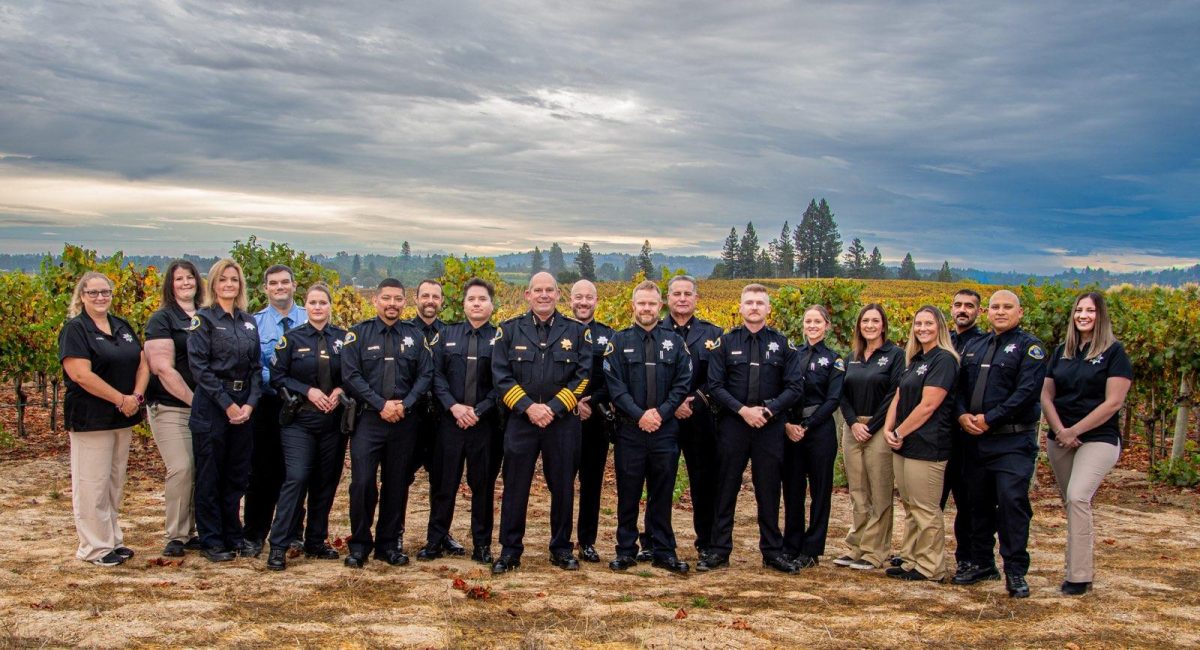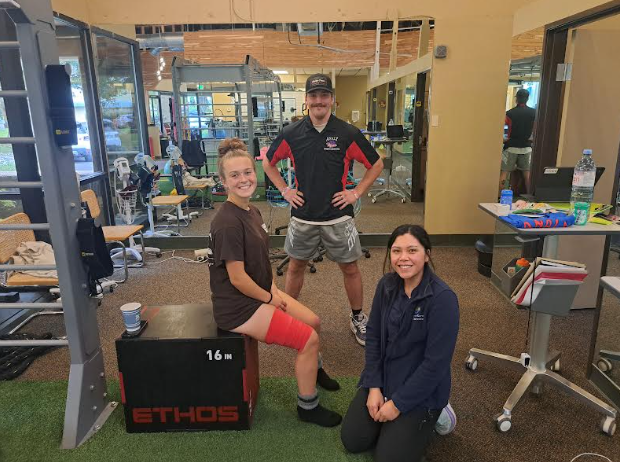Disagreement is brewing between teachers and administrators over how state funding for Analy High School should be spent. The process in making those decisions is complex, affecting many different communities of students, parents, teachers, staff, administrators, and taxpayers.
Every three years California schools must come up with a comprehensive plan called the Local Control Accountability Plan (LCAP). Creating the LCAP is a significant responsibility of the superintendent, and requires input from various stakeholders like teachers and community members. There is a wide variety of categories that get funded such as state grants that go to programs targeting specific student groups. The LCAP is a critical component of California’s Local Control Funding Formula (LCFF) and is designed to be updated annually. It addresses the needs of all students, particularly high-need groups referred to as “unduplicated students,” bureaucratic language for foster youth, homeless, low-income, and English learners. These students are termed “unduplicated” because each is counted only once, even if they fall into multiple categories. The LCAP covers eight state priority areas—Basic Services, Implementation of State Standards, Course Access, Student Achievement, Other Student Outcomes, Student Engagement, Parent Involvement, and School Climate.
Supplemental funding is aimed at generally disadvantaged students while concentration funding is specifically designed to address the greater resource needs of students in high-poverty schools and districts.
“The District’s previous 3-year LCAP was written as a compliance document. It focused solely on the supplemental funding that the district receives for our unduplicated student population,” said West County Superintendent Chris Meredith. “The previous process of engaging educational partners was minimal and the District missed the opportunity to develop an informed strategic plan representing all District staffing and educational programs that directly aligns with the various needs of our current and growingly diverse student population.” According to Meredith, because the last LCAP process was inadequate, he needs a consultancy to help with this one.
On August 23, 2023, the school board presented a request from Chris Meredith to hire a consultant from Seaton Consulting to assist in creating the LCAP. Meredith stated in this meeting that by hiring this consultant “It’s really going to help us build our best LCAP that we can build.”
However, Board members and teachers alike expressed concerns over involving a third party in this process. Teacher and CTA union leader Lily Smedshammer said at that board meeting that the LCAP is “typically the job of a superintendent” noting that “generating that LCAP is supposed to be an internal process that yields insight and a plan for action. So I’m shocked to see this item here to approve a contract with Seaton Consulting. We are already given access to, through SCOE [Sonoma County Office of Education], to essentially write out a plan” adding that “this process is meant to be seen as an opportunity to grow as a district leader, yet we’re looking to hire it out…These services do not sound like guidance to me. This agreement clearly states that Seaton will be generating the language in our LCAP for our superintendent in exchange for $20,000.” She said this money is “desperately needed to create class sections that would alleviate the current strain on our packed academic support classes.”
According to Smedshammer, alternatives to a consultant were available. There was an LCAP webinar hosted by School Services of California on December 12, 2023, only costing $275. Doing so would not just be saving the school consulting fees, “which is an ongoing problem in this district, but [the superintendent] would learn to do this vital part of his job.”
Teachers Brian Miller and Violet Tindall shared similar views. Miller called it “a totally unnecessary expense for somebody we just do not need.” Tindall even suggested that she could help with the process rather than a consultant.
This is not how Chris Meredith, along with the members of the board, see it, maintaining that the addition of a consultant would aid in the LCAP process. “Our District leadership and Board of Trustees prioritize professional development for all staff, including its administrators. Outsourcing a responsibility is not an accurate representation of the intent to contract with Seaton Consulting… Seaton worked closely with myself and our CBO, Andrew Soliz, who also plays an integral role in developing our LCAP, ” Meredith said.
West Sonoma County High School District’s funds are spread thin, particularly because our teachers are paid the highest salaries in Sonoma County. This is something that our district and teachers union (WSCTA) is proud of and has worked hard to provide. Teachers at Analy make from $68,000-$110,000 depending on years worked and degrees they have. The average salary is $97,976, which is $2,816 more than the average statewide salary with teachers’ salaries rising 9% to 25% on the new salary schedule. (More specific salary information is available on the district website wscuhsd.org under salary schedules. Management salaries, like the superintendent’s salary, are available by going through management contracts on the district website).
Salaries of all employees is always a negotiated issue. According to the current management contract, the superintendent’s base salary is $240,000 a year with a 3% annual raise, contingent on satisfactory performance. It also includes phone allowance and a travel allowance, something that is common for schools to provide.
The contract does not include “me too” raises, a practice where district managers can receive the same percentage raise as teachers, as negotiated by the teacher’s union even though they’re not part of the teacher’s union. For example, if teachers receive a 10% raise, both a teacher earning $68,000 would see an increase of $6,800, an administrator earning $200,000 would see a $20,000 annual increase. This means administrators, who negotiate against the union, end up benefiting from the union’s efforts. (10% raises are not common occurrences). These “me too” raises are in place to maintain pay equity across roles, but can be perceived as widening the existing pay gap.
On the concept of these raises Meredith stated, “We did not do “me-too” raises this past year…The Board ultimately set the percentage increase for each administrative position.” The salary difference between teachers and administrators reflects a broader trend across the state. Over time, this gap has widened, potentially affecting relationships between teachers and district administration even though the last me-too raise predates Meredith’s tenure.
On all of these funding issues, Meredith is confident that the district has adequately reached out for community input. He is encouraging students and staff to read through our current LCAP. “It organizes all educational District expenditures and aligns those…with our goals and mission,” he said. The LCAP page online is at https://www.wscuhsd.org/page/lcap-info.
His larger point is that all LCAP decisions are made with input from the LCAP Educational Partner Committee which consists of more than 20 members from various parts of our school community. “This team met six times throughout the 2023-2024 school year, analyzing data and youth truth survey results, discussing funding sources as related to educational program and staffing, conducting root cause analysis activities, assisting in the development of our current LCAP goals, reimagining our new mission statement, and informing the the overall vision of our District strategic plan, which is the LCAP.”















